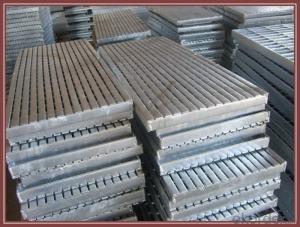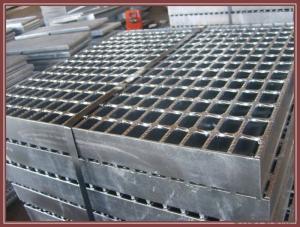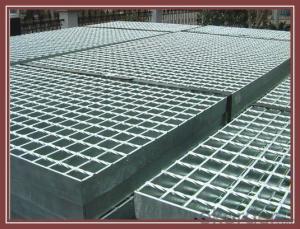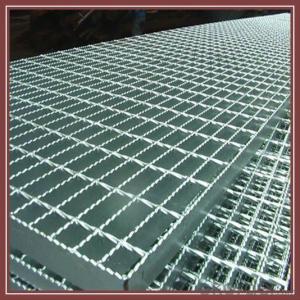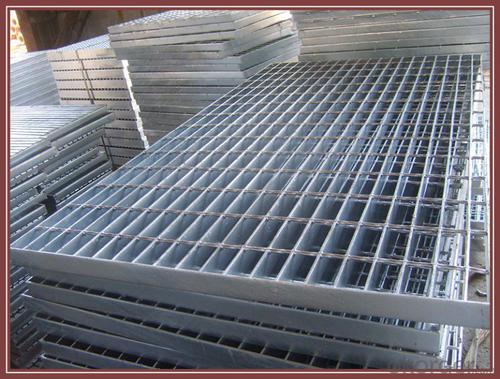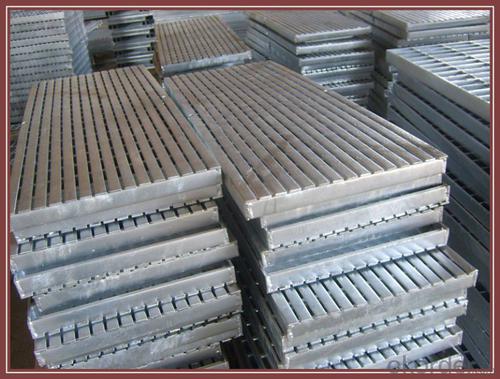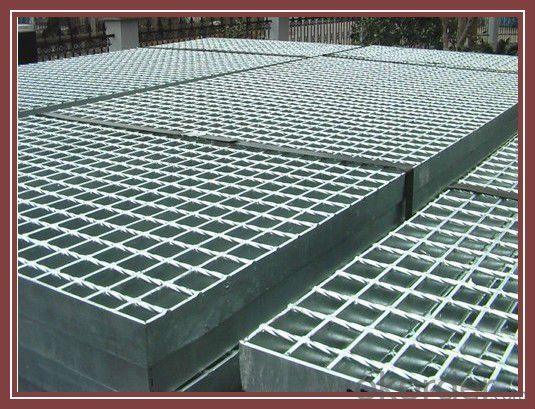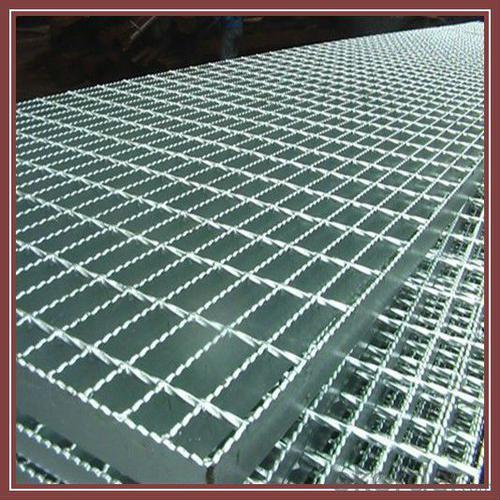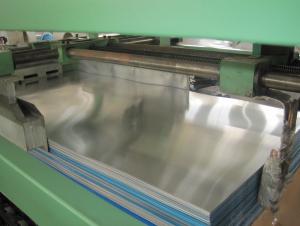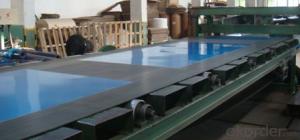A255/40/100 Aluminum Bar Grating For Deck Access Stair Tread
- Loading Port:
- Qingdao
- Payment Terms:
- TT OR LC
- Min Order Qty:
- 5000 pc
- Supply Capability:
- 6000000 pc/month
OKorder Service Pledge
OKorder Financial Service
You Might Also Like
1.Description of Drainage trench cover:
Drainage trench cover is widely used in the urban road, the square, the botanical garden, the wharf, the airport, the parking lot, the road, each kind of industry, the civil project, etc.
2.Main features of Drainage trench cover:
I--Carrying 20 tons of weight
II—Carrying 14 tons of weight
III---carrying 6 tons of weight
IV---carrying 2 tons of weight
V---Carrying pedestrian weight
3.Glass Wool Blanket Images:
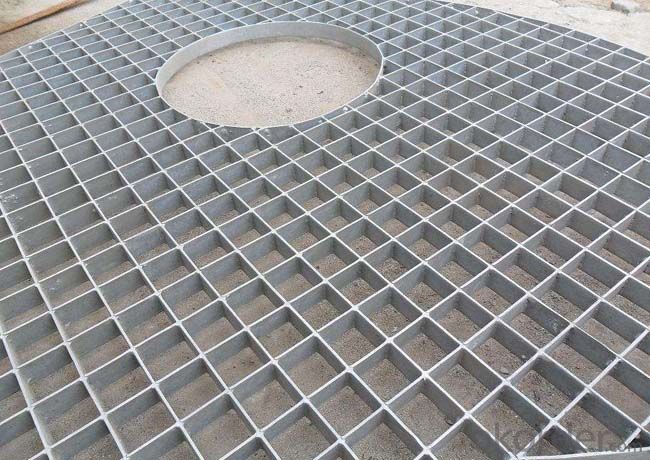
4. Drainage Trench Cover Technical Parameters:
These drain cover plate applies to the road cross-sectional and longitudinal drain. The drains width ranging from 200mm to 550mm.
A means the steel grating length
H means the steel grating height
A means the frame length
H means the frame height
5.FAQ
We have organized several common questions for our clients,may help you sincerely:
①How about your company?
A world class manufacturer & supplier of Drainage trench cover is
one of the large scale professional investment casting production bases in China,consisting of both casting foundry forging and machining factory. Annually more than 8000 tons Precision casting and forging parts are exported to markets in Europe,America and Japan. OEM casting and forging service available according to customer’s requirement.
②How to guarantee the quality of the products?
We have established the international advanced quality management system every link from raw material to final product we have strict quality test; We resolutely put an end to unqualified products flowing into the market. At the same time, we will provide necessary follow-up service assurance.
- Q: Can aluminum sheet be used for heat exchangers?
- Indeed, aluminum sheet can be effectively utilized in heat exchangers. The utilization of aluminum as a material for heat exchangers is widespread owing to its remarkable thermal conductivity, lightweight nature, and resistance to corrosion. The remarkable thermal conductivity of aluminum facilitates the efficient transfer of heat between fluids, rendering it suitable for a multitude of heat exchange applications. Furthermore, aluminum is obtainable in diverse alloys and thicknesses, granting adaptability in design and customization to cater to specific heat exchanger prerequisites. On the whole, aluminum sheet emerges as a favored option for heat exchangers in industries encompassing automotive, HVAC, and aerospace.
- Q: im about to get a grinder online, and i dont know if i should get an aluminum one, or a non aluminum one. cuz i dont know what non aluminum grinders are made out of. thanks
- they can be made outta plastic or wood, prboably something else..but i can't thnk of it. ive had a plastic 1 and it still worked great..even though it was the ch eapest grinder in the store. so..personal preference really. gl
- Q: where can I sell aluminum tabs from aluminum cans in Palmdale, Califronia?
- For okorder /
- Q: Can the aluminum sheets be used for manufacturing furniture?
- Yes, aluminum sheets can be used for manufacturing furniture. Aluminum is a lightweight and durable material that can be easily shaped and formed into various furniture designs. It is also corrosion-resistant, making it suitable for both indoor and outdoor furniture applications.
- Q: Is the chemical formula for Aluminum Sulfate Al2(SO4)3?How and why is Al2(SO4)3 wrong?
- Aluminum Sulfate Formula
- Q: What is the melting point of aluminum sheets?
- The melting point of aluminum sheets is approximately 660 degrees Celsius or 1220 degrees Fahrenheit.
- Q: Are aluminum sheets flammable?
- Aluminum sheets, I assure you, are not flammable. Their non-combustible nature is attributed to the fact that aluminum possesses a high melting point of 660 degrees Celsius (1220 degrees Fahrenheit). It neither burns nor supports combustion, rendering it a favored option in numerous sectors, particularly within the construction industry, where fire resistance is paramount.
- Q: How is the thickness of an aluminum sheet measured?
- Various methods can be employed to measure the thickness of an aluminum sheet. One commonly used technique involves the utilization of precision measuring tools like a micrometer or caliper. By placing the micrometer on one end of the sheet and gradually closing it until it reaches the other end, an accurate measurement of the thickness can be obtained. This particular method is suitable for thin aluminum sheets. For thicker sheets, a thickness gauge can be utilized. This gauge consists of a compact handheld device equipped with a probe that is pressed against the surface of the sheet. The gauge then displays the thickness reading on a screen. This approach proves especially advantageous when measuring thicker sheets as a micrometer or caliper may not be feasible. An alternative means of measuring the thickness of an aluminum sheet involves the use of an ultrasonic thickness gauge. This tool emits ultrasonic waves from a transducer, which are subsequently reflected back from the surface of the sheet. By calculating the time taken for the waves to travel and return, the gauge can determine the thickness of the sheet with great accuracy. This method is particularly effective for measuring the thickness of large or irregularly shaped aluminum sheets. To summarize, the thickness of an aluminum sheet can be determined using a variety of tools such as a micrometer, caliper, thickness gauge, or ultrasonic thickness gauge, depending on the thickness and size of the sheet.
- Q: Are aluminum sheets suitable for food storage containers?
- Yes, aluminum sheets are suitable for food storage containers. Aluminum is a lightweight and versatile metal that is commonly used for food packaging and storage. It is non-toxic, non-reactive, and does not impart any taste or odor to the food stored in it. Aluminum containers are also resistant to corrosion, which helps to keep the food fresh and prevent any contamination. Additionally, aluminum is a good conductor of heat, allowing for efficient cooling or heating of the food. It is also recyclable, making it an eco-friendly choice for food storage containers. Overall, aluminum sheets are a popular and reliable option for storing food safely and effectively.
- Q: Is it possible to utilize aluminum sheets in the construction of environmentally friendly buildings?
- <p>Yes, you can use aluminum sheets to create a green building. Aluminum is a sustainable material due to its recyclability and energy efficiency in production. It has a high recycled content rate, reducing the need for raw material extraction. Additionally, aluminum's lightweight nature can lead to reduced energy consumption in transportation and construction. Its durability and resistance to corrosion can extend the life of a building, further contributing to sustainability. However, it's important to consider the entire lifecycle impact, including the energy used in aluminum production, and to source aluminum responsibly to ensure a truly green building.</p>
Send your message to us
A255/40/100 Aluminum Bar Grating For Deck Access Stair Tread
- Loading Port:
- Qingdao
- Payment Terms:
- TT OR LC
- Min Order Qty:
- 5000 pc
- Supply Capability:
- 6000000 pc/month
OKorder Service Pledge
OKorder Financial Service
Similar products
Hot products
Hot Searches
Related keywords

